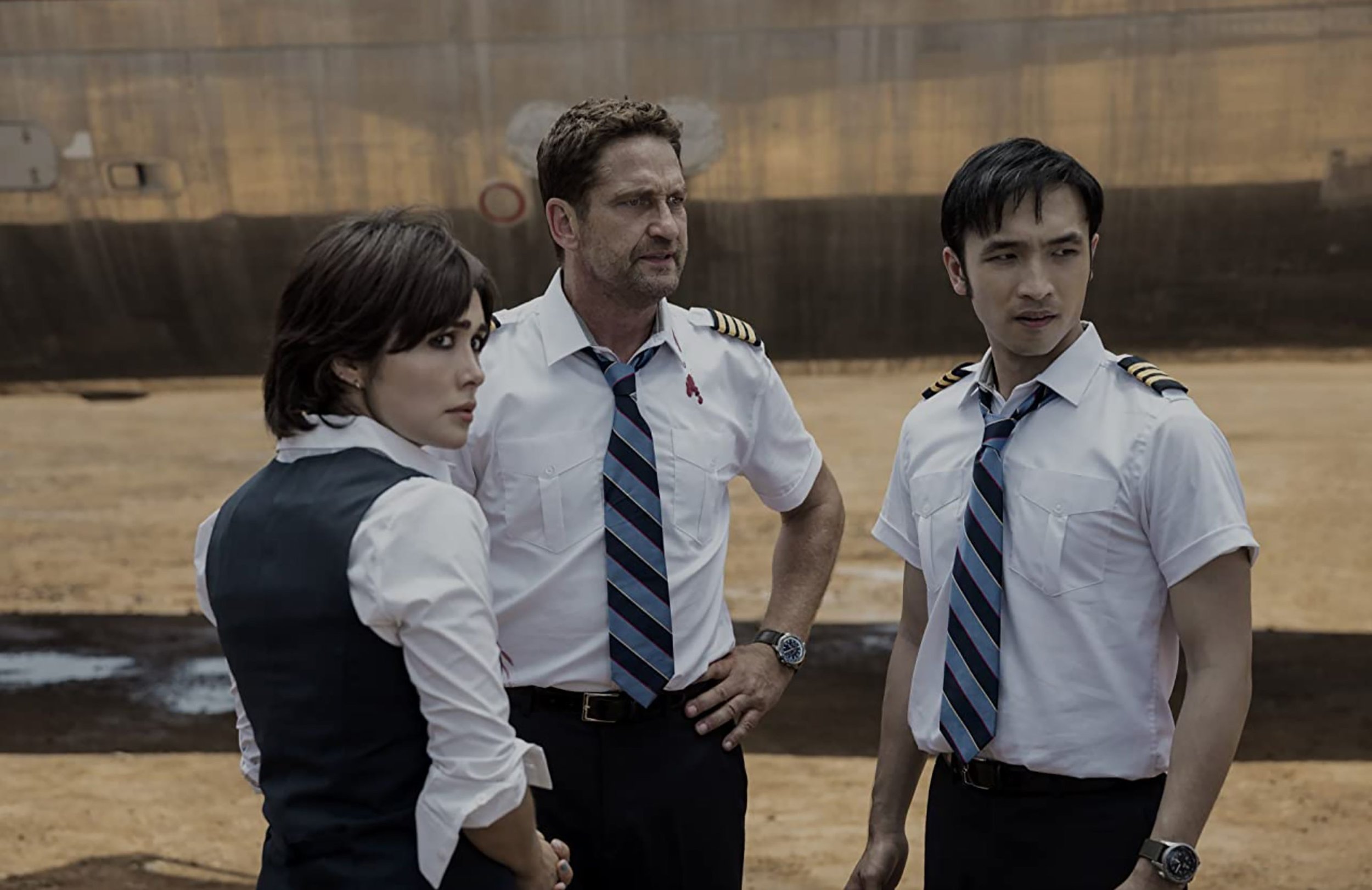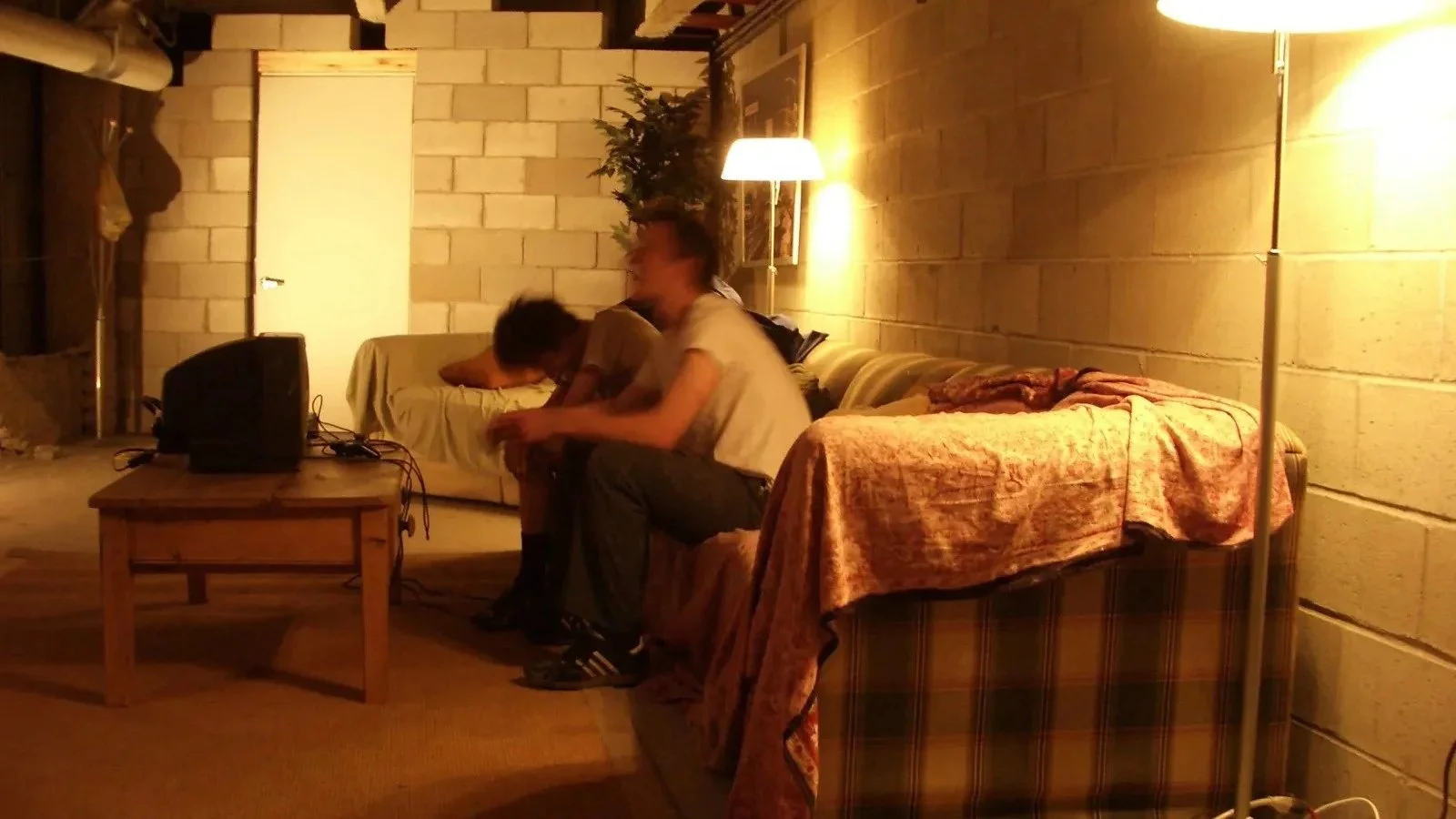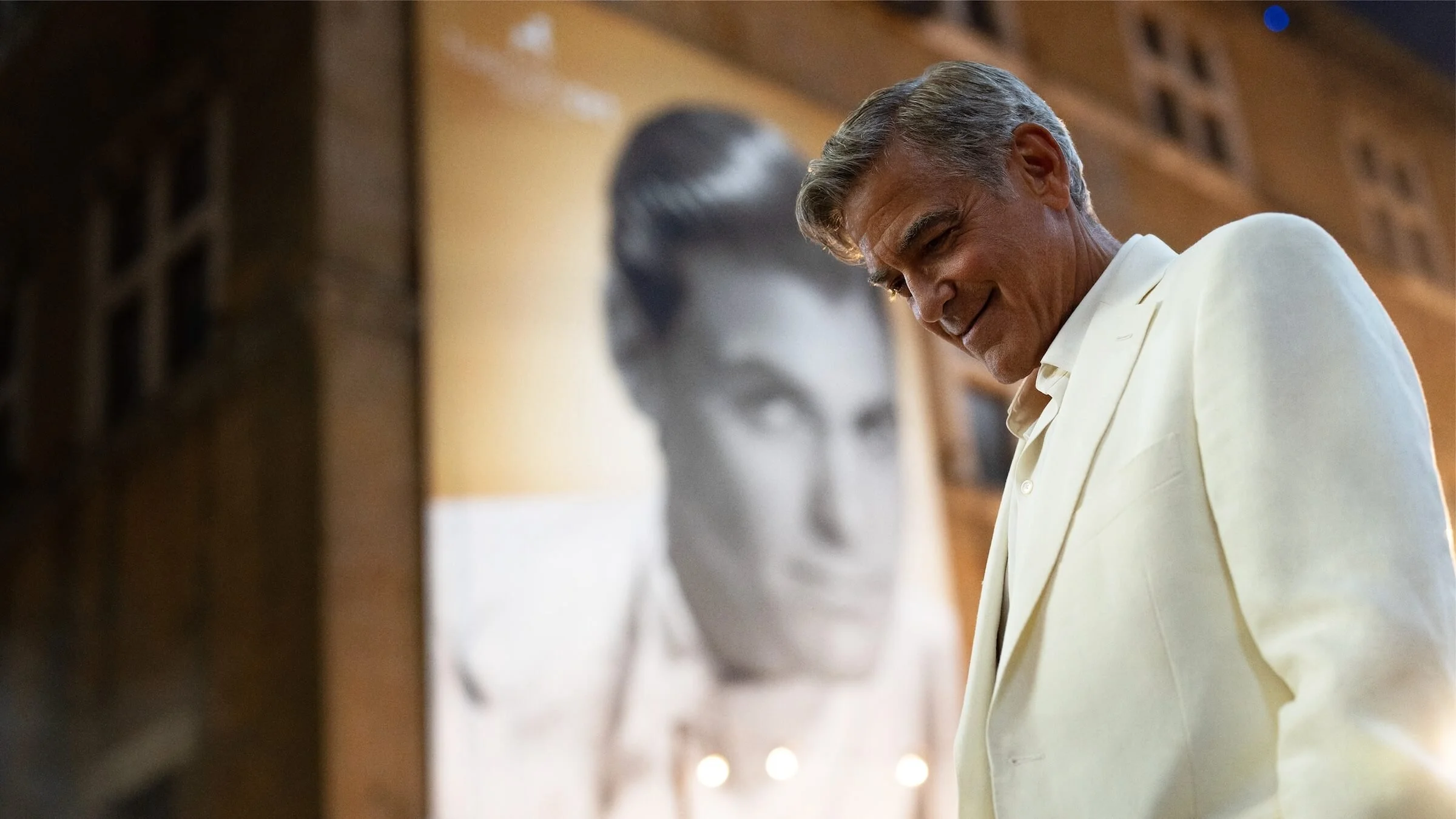Review: Plane (2023)
It’s all about the simple things in life: a cold beer on a hot day; a comfy chair and a good book; Gerard Butler as a commercial airline captain stranded on a rebel island in the Philippines saying “They’re my passengers, my responsibility.” Jean-François Richet’s Plane is a simple movie, but it understands the pleasures of such a conventional approach to action storytelling. It has patience, clarity, and precision to its storytelling, which plays like a breath of fresh air when compared to the overlong and overcomplicated franchise fare of contemporary cinema. The minimalist, literal title says it all and epitomizes just what a crowd-pleasing, relatively serious and no-frills affair Plane is. It gives you what it promises and doesn’t waste time doing so.
Once upon a time there was a little thing called a three-act structure that dominated Hollywood storytelling. This structure was conventional, but it proved to be a useful skeleton upon which to build a movie narrative. Plane harkens back to this conventional past (specifically the 1990s). As a result, the film appears almost astoundingly precise and understated compared to the films of Marvel, DC, and other mega-franchises, when in actuality it’s a straightforward action thriller.
In a conventional three-act structure, every scene forwards the plot or helps us better understand the protagonist. It follows a chain of action that grows ever more exciting until either the protagonist gets what he or she wants or fails (although we know a happy ending is far more likely than a sad one in most Hollywood pictures). Plane follows this directive to a tee.
The opening sets up the scenario and introduces us to the protagonist, who has various motivations or obstacles in his or her life. In Plane, that protagonist is Gerard Butler’s Captain Brodie Torrance, a widower with a grown daughter who is flying bad air routes out of Singapore. In the opening scenes, we watch in detail as he goes through pre-flight safety procedures. When a prisoner, Mike Colter’s Louis Gaspare, is brought on board for extradition, he reacts with professional calm. Once the plane is airborne, we see him react to bad routing and adjust when they fly into a thunderstorm. As the situation escalates, Captain Brodie responds with clear attention-to-detail and the film patiently follows along. Clearly, he is an expert.
Once that’s established, the film creates a crisis because the second act of a movie puts the protagonist into a crisis, establishing and rapidly escalating the stakes and the various conflicts that stand between the protagonist and his goal. In Plane, despite Captain Brodie’s best efforts, which saves most of the passengers and crew, the plane loses power and he has to crash land it on a jungle island in the southern Philippines. He gathers supplies, briefs the passengers, and comes up with a plan: find someone and call for help. But when he finds someone, he finds trouble, as the island is under rebel control. A militia captures the passengers to hold them for ransom. And, as we learn back home in New York City, where the airline gathers a team lead by an expert crisis manager, Tony Goldwyn’s Scarsdale, the Philippine military is in no rush to rescue the passengers. Captain Brodie is on his own—except for the extradited murderer in his custody, Louis Gaspare, who may be his only chance to get out alive.
Once we know the protagonist and the stakes of the conflict, we watch it resolve in act three. In Plane, we watch Captain Brode and Louis Gaspare try to save the passengers. Will they be successful and survive? Will the response team arrive in time to rescue them? Will Captain Brodie see his daughter again? We know the hero, we know the dire situation he finds himself in, and we know the stakes if he’s not successful.
Once you have such a set-up, all you need to do is execute it with precision. Of course, the pleasure of Plane is not simply the efficient execution of a B-movie thriller plot—it’s that the film is effectively made. It knows how to suck us in and keep us interested. Richet knows how to craft suspenseful sequences and use parallel editing to give us more information than the characters in order to ratchet up tension. He knows how to shoot action scenes where the geography of the area is clear and the camera pays special attention to the consequences of violent actions—such as the exploding impact of a 50 cal round on a human body, which will blow a large hole in said body and send it flying into vehicles and other nearby objects.
Most of all, the filmmakers know how to use the charming, sweaty, charismatic desperation of Gerard Butler as an actor, especially in roles like this one. Butler is a bit of a meathead and a bit desperate, a star who never lived up to the superheroic promise he projects in his breakout feature, Zack Snyder’s 300. He seems like he’s had a few too many drinks and a few too many days in the sun, but these superficial imperfections make him seem more relatable, more normal than your typical action leading man. He’s someone you can root for, especially in movies like Plane, where he’s playing a good man who’s good at his job (but not superheroic) and simply wants to stay out of trouble.
Plane doesn’t surprise you just as Gerard Butler doesn’t surprise you. But sometimes you don’t need surprise. Sometimes you need the efficient execution of formula and the patience and clarity of a director to trust that a conventional three-act structure is enough to satisfy a moviegoer going to see an action thriller starring Gerard Butler in the middle of January. It’s modest, it’s concise, it’s a B-movie that doesn’t really have a misstep throughout its runtime. In a cinematic age when you can’t even expect Marvel to deliver a solid genre movie every time out, such competence ought to be celebrated.
7 out of 10
Plane (2023, US)
Directed by Jean-François Richet; written by Charles Cumming and J. P. Davis, based on a story by Charles Cumming; starring Gerard Butler, Mike Colter, Yoson An, Tony Goldwyn, Daniella Pineda, Paul Ben-Victor.



Joe Carnahan’s cop thriller starring Matt Damon and Ben Affleck is an enjoyable whodunnit.